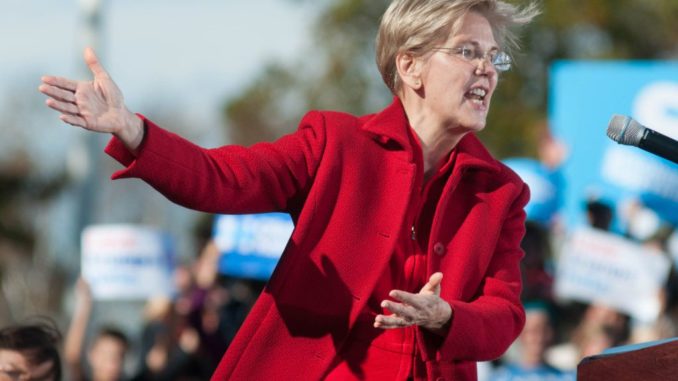
Six Bitcoin mining companies have until Feb. 10, 2021 to answer a letter from senators and representatives pertaining to their energy usage, source, and growth prospects.
The desk of Senator Elizabeth Warren has penned letters to six Bitcoin mining companies – Riot Blockchain, Marathon Digital Holdings, Stronghold Digital Mining, Bitdeer, Bitfury Group, and Bit Digital – signed by eight Congress members, requesting these companies to disclose how much electricity they use, where it is sourced, and their stateside growth prospects.
The letters were signed by Senators Warren (D-Mass.), Whitehouse (D-RI), Merkley (D-Ore.), Hassan (D-N.H.), and Markey (D-Mass.), and Representatives Katie Porter (D-Calif.), Rashida Tlaib (D-Mich.), and Jared Huffman (D-Calif.).
These latest letters follow suit to a similar letter that Sen. Warren sent to Greenidge Generation Holdings back in December 2021, asking them to answer questions about their emissions and impacts on local ecosystems and electricity prices – as Bitcoin mining’s power consumption has more than tripled since 2019, consuming as much energy as entire countries.
It is well-known that Bitcoin’s PoW consensus algorithm consumes much more power than many countries. If it could be considered a country, Bitcoin mining would rank twenty-seventh in the world for electricity consumption. The proof-of-work method is energy inefficient to prevent tampering with its immutable ledger of transactions.
Bitcoin’s closest competitor Ethereum will answer the proof-of-work problem by using a less energy-intensive proof-of-stake validation in its upgrade, but Bitcoin has no intentions to migrate from its current consensus mechanism.
Shifting focus to fossil fuel eradication
The letters were sent in the wake of a congressional hearing held on Jan. 20, 2022. Concerns were raised by members of Congress on the resurrection of old powerplants to generate fossil-fuel electricity.
“Given our current climate objectives, examples like this are deeply concerning. Our focus now needs to be reducing carbon emissions overall, and increasing the share of green energy on the grid,” said Representative Degette.
Among the companies mentioned are Stronghold Digital Mining, Riot Blockchain, Bitfury Group, Bit Digital, and Marathon Digital Holding. Stronghold bought two plants in Pennsylvania that burn coal waste to generate electricity for mining. The power is fed into the grid during times of high demand, despite burning coal-waste still polluting the air.
“The extraordinarily high energy usage and carbon emissions associated with Bitcoin mining could undermine our hard work to tackle the climate crisis – not to mention the harmful impacts cryptomining has on local environments and electricity prices. We need more information on the operations of these cryptomining companies to understand the full scope of the consequences for our environment and local communities,” said Senator Warren.
Could surplus renewables be the answer?
Some cryptocurrency advocates argue that surplus renewable energy is the answer. This would see mining companies making use of renewable solar or wind energy that cannot be harnessed due to a lack of storage capacity. This use of excess renewables is only theoretical, though, and if mining companies are competing with other customers for conventional renewable or non-renewable sources, this could drive up the price for other customers.
This was seen in Plattsburg, New York, where electricity bills increased by as much as $300 in 2018. The U.S. has become the mining hub of the world, since China closed its doors to miners in 2021, who previously used hydro-electricity during the rainy months, and coal if they ran out.
What do you think about this subject? Write to us and tell us!
Disclaimer
All the information contained on our website is published in good faith and for general information purposes only. Any action the reader takes upon the information found on our website is strictly at their own risk.






Be the first to comment